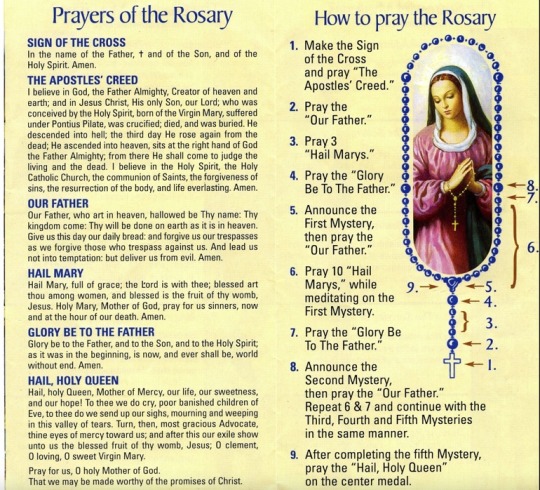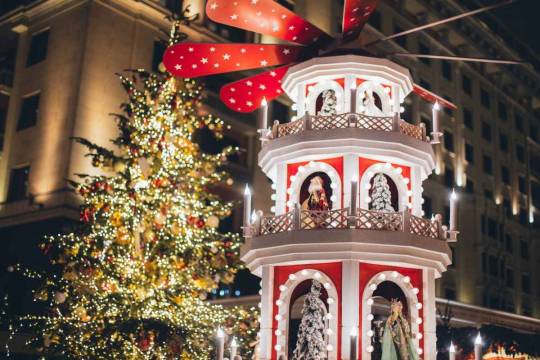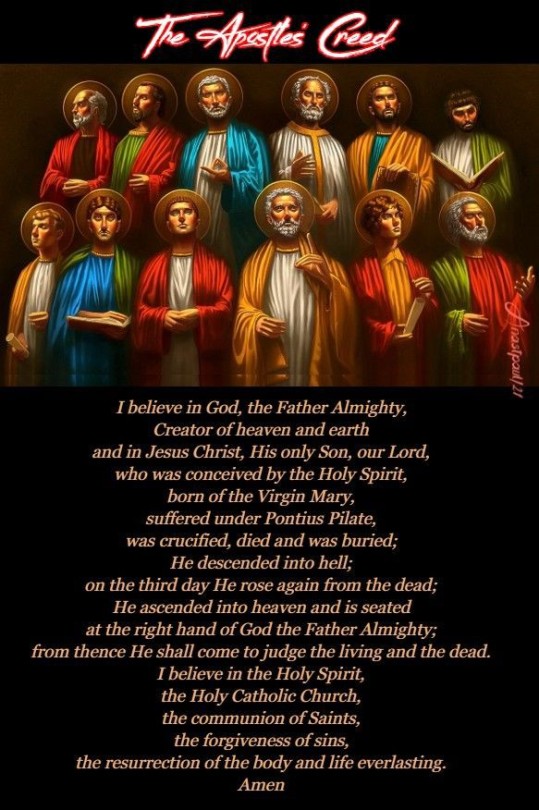#the apostles creed
Text

#catholic church#catholic#catholocism#catholiscism#the virgin mary#jesus#the blessed virgin mary#mother mary#mother of god#rosary#religious art#jesus christ#religion#christianity#our father#the apostles creed#glory be#bible#bible scripture#hail mary#pro life#girlblogger
156 notes
·
View notes
Text

A page from a medieval Catholic manuscript which illustrates what was known in medieval Catholicism as " the harrowing of Hell". It's taken from the fifth article of the Apostles Creed.
#traditional catholicism#traditional catholic images#middle ages catholism#middle ages catholic religious art#traditional catholic teachings#the apostles creed#the harrowing of hell#middle ages catholic manuscripts#fifth article of the apostles creed
13 notes
·
View notes
Text
It is necessary to believe that there exists a Church which is one, holy, and catholic. As regards the three Persons of the Trinity, Father, Son, and Holy Spirit, we believe in them in such a way as to place our faith in them. But now, changing our mode of expression, we declare that we believe the holy Church and not in the holy Church. Thus, just by this difference in language, God, who is the Author of all things, is distinguished from all His creatures; and when we receive all the precious blessings which He has conferred on His Church, we attribute them to His divine goodness.
- The Catechism of Trent (1.9.23). Bolded emphasizes added.
We must not believe in anyone but God. [...] I believe the holy Church, apostolic, universal, and orthodox, which has taught us this sound doctrine. I do not believe in Her as I believe in God, but I confess that She is in God, and God is in Her, not as though She Herself contained God, but rather insofar as She is Herself contained by God.
- John of Fécamp (Confessio fidei, Chapter 26)
The Creed says: credo ecclesiam, not in ecclesiam. One cannot believe in the Church —the holy Church— as one believes in God, the Father, Son, and Holy Spirit. According to this third article, one can believe only in God, in the Holy Spirit, and it is by knowing and confessing his work that one can believe the Holy Church exists, can believe that forgiveness of sins is granted by the Holy Spirit to man; or, as the first article declares, believe that heaven and earth were created by God the Father. The holiness of the Church, however truly it may exist and may be known by faith, is not the holiness of the Holy Spirit; it is the holiness that the Holy Spirit created and bestows upon her. The Holy Spirit separates the Church and sets her apart; he distinguishes her. He gives her a specific being and a particular law. The Church is holy because she remains a part of the created world, in which it is not possible to believe as one believes in God.
- Karl Barth (Church Dogmatics, Volume 4: The Doctrine of Reconciliation)
The entire Church always wants to refer humbly to her Lord. She does not wish in any way, even by simple passing preterition, to make herself equal to God or substitute herself for him. By doing this the Church puts aside more firmly than ever something which can in fact be called her "permanent temptation," that of self-idolatry.
- Henri de Lubac (The Christian Faith: An Essay on the Structure of the Apostles' Creed, pages 182-182), trans. Richard Arnandez, F.S.C.
#Christianity#Catholicism#faith#catechism#Ecclesia#God#Apostles' Creed#Latin#Karl Barth#Henri de Lubac#idolatry
25 notes
·
View notes
Text
An Adapted Apostle's Creed
I believe in Love [Aphrodite/God], Mother Almighty, Creator of Heaven and Earth; and in Liberation [Bacchus/Yeshua], her Son and our Lord; who was conceived by the Holy Spirit, born of the divine Saint Mary, suffered under Pontius Pilate, was crucified, died, and was buried. He descended into the Summerlands [Underworld]; the third day He rose again from the dead. He ascended into Heaven, and sits at the right hand of Love, Mother Almighty; from there He shall guide the living and the dead. I believe in the Holy Spirit, the universal church, the communion of saints, the forgiveness of sins, the immortal soul, and life everlasting. Amen/Blessed be.
[This is a work in progress. Note, I am a pagan who is incorporating Christianity into my practice because I like the rituals and prayers they have, and because I am a cultural Christian. I am not yet comfortable claiming to be a Christopagan, but I respect all belief systems.]
#christopagan#prayer#apostles creed#pagan#christian witch#aphrodite#bacchus#dionysus#dionysos#jesus#jesus christ#yeshua of nazareth
7 notes
·
View notes
Text
Thinking again today about how the term "deconstruction" became such a catchall for the widespread upheaval in Christian circles the past several years, to include the embracing of agnostic/atheist stances with the throwing out of excess doctrines and ideologies to begin personal spiritual reformation.
What I have been walking through is the latter. But it has involved a lot of deconstruction. I had to (and continue to) remove the debris of All The Other Stuff that has been piled onto my faith by myself and my teachers and my culture, etc. I have to do that before I can get anywhere near the reformation part.
As far as spiritual formation goes, I think deconstructing my faith has been one of the best things to happen to me, better realizing what is meant by the builders rejecting the Cornerstone. But by no means has it been one of the easiest.
I say this here for two reasons:
One, I am so thankful for my deconstruction. I wish I didn't need it; I would prefer to never have the questions and the outrage and the anger and the grief and the confusion and the doubt and the wordless prayers and the betrayal. But they have taught me so much about the kingdom of God that I never would be able to see otherwise.
Two, it is possible (even likely) that some things I posted or reblogged or dm-ed in years past no longer align with my beliefs, though my core beliefs have not changed. I won't apologize for the change and growth bc I could not know then what I do now, and I will most certainly continue to say things I later learn better about. But I will offer an apology for any confusion that might cause, if one should come across some old post, or have followed me based on particular parameters that no longer exist.
Always be listening and learning, eager to grow, eager to see what has been hidden or neglected. It is not easy and, like with the term "deconstruction," you can be misunderstood as moving backward rather than forward. Yet be of good heart, and be transformed by the renewing of your mind in Christ Jesus.
#ragamusings#just processing a lot all the time and it's easier to feel grateful about it today than a lot of days so here i am#christianity#'core beliefs' here being a phrase which means: the apostles'/nicene creed and everything else is at a step-by-step process of examination#as you can imagine or may have experienced this is exhausting lol but also deeply good
7 notes
·
View notes
Video
youtube
Credo - latin chant
3 notes
·
View notes
Text
'God is dead' as an edgy flippant atheist gotcha is so funny to me when applied to Christianity. Like I get what they're getting at but 'God is dead' is in fact a cornerstone of mainstream Christiam orthodoxy. We've already done a whole apophatic theology and based our religion around the concept of 'God is dead'... this isn't the slam dunk zinger one might hope for in a sort of bumper-sticker slogan battle of wits
5 notes
·
View notes
Text
Catechism of Pope Saint Pius X
The Apostle’s Creed
The Creed in General
1. Q. What is the first part of Christian Doctrine?
A. The first part of Christian Doctrine is the Symbol of the Apostles, commonly called the Creed.
2. Q. Why do you call the Creed the Symbol of the Apostles?
A. The Creed is called the Symbol of the Apostles because it is a summary of the truths of the faith taught by the apostles.
3. Q. How many articles are there in the Creed?
A. There are 12 articles in the Creed.
4. Q. Recite them.
A. (1) I believe in God, the Father Almighty, Creator of heaven and earth; (2) And in Jesus Christ, His only Son, our Lord; (3) Who was conceived by the Holy Ghost; born of the Virgin Mary; (4) Suffered under Pontius Pilate: was crucified, dead, and buried; (5) He descended into hell; the third day He rose from the dead; (6) He ascended into heaven; sitteth at the right hand of God the Father Almighty; (7) From thence He shall come to judge the living and the dead. (8) I believe in the Holy Ghost; (9) The Holy Catholic Church; the Communion of Saints; (10) The forgiveness of sins; (11) The resurrection of the body; (12) Life everlasting. Amen
5. Q. What is meant by the word: “I believe” , which you say at the beginning of the Symbol?
A. The word: I believe, means I hold everything that is contained in these twelve articles to be perfectly true; and I believe these truths more firmly than if I saw them with my eyes, because God, who can neither deceive nor be deceived, has revealed them to the Holy Catholic Church and through the Church to us.
6. Q. What do the articles of the Creed contain?
A. The Articles of the Creed contain the principle truths to be believed concerning God, Jesus Christ, and the Church, His Spouse.
7. Q. Is it useful to recite the Creed frequently?
A. It is most useful to recite the Creed frequently, so as to impress the truths of faith more and more deeply on our hearts.
The First Article of the Creed
God the Father Almighty
1. Q. What does the First Article of the Creed: I believe in God, the Father Almighty, Creator of heaven and earth, teach us?
A. The First Article of the Creed teaches us that there is one God, and only one; that He is omnipotent and has created heaven and earth and all things contained in them, that is to say, the whole Universe.
2. Q. How do we know that there is a God?
A. We know that there is a God because reason proves it and faith confirms it.
3. Q. Why do we call God the Father?
A. We call God the Father because by nature He is the Father of the Second Person of the Blessed Trinity, that is to say, of the Son begotten of Him; because God is the Father of all men, whom He has created and whom He preserves and governs; finally, because by grace He is the Father of all good Christians, who are hence called the adopted sons of God.
4. Q. Why is the Father the First Person of the Blessed Trinity?
A. The Father is the First Person of the Blessed Trinity, because He does not proceed from any other Person, but is the Principle of the other two Persons, that is, of the Son and of the Holy Ghost.
5. Q. What is meant by the word Omnipotent?
A. The word Omnipotent means that God can do all that He wills.
6. Q. God can neither sin nor die, how then do we say He can do all things?
A. Though He can neither sin nor die, we say God can do all things, because to be able to sin or die is not an effect of power, but of weakness which cannot exist in God who is most perfect.
22 notes
·
View notes
Text
when starchild from ghost quartet said "when I was a baby, I was blessed by a stranger / in waters I didn't understand / and now I'm infected with disbelief and blasphemy / I'll never have a holy land /
I am a ghost in the eyes of my God" that felt targeted :/
#a sock speaks#bitter work#I've been attended churches that are open communion for anyone who's baptized#and I was baptized but with a non-Nicene formula#the upci usually baptizes adults or kids old enough to choose but I was baptized really young#how much choice is involved if you're baptized at age 3? not much more than if you're baptized as a newborn#but I guess you can be baptized by immersion at 3 and that makes a difference#and like. I wish I'd had a Nicene creed-observant baptism as a baby. I'd be okay with someone choosing that for me.#but as an adult I feel like I have to act out of deep conviction if I'm going to be rebaptized.#for one thing it's a pretty serious step theologically#for another I have to have my mind completely made up because it will be an emotional scar to my parents#getting baptized in secret seems to go against the whole point of being baptized#but do I believe in trinitarian doctrine firmly enough to claim it as a matter of conviction?#I took a pneumatology class to try to figure it out but tbh it's not helping#I think I can confess the Apostles' Creed and I'm less confident about the Nicene Creed but I think maybe??#but I'm not sure that my interpretations of the creeds match up correctly#wandering through the wilderness for a few years could be bearable but it's much harder to think you'll spend the rest of your life there#this is not my home. this is not my home. where is my home? when can I go home?
10 notes
·
View notes
Text
I should add the clarification that when I was praying the rosary at the dentist's, I was praying what I REMEMBERED of the rosary
#it was apostle's creed-hail mary-Lord's prayer and then ten hail marys and one Lord's prayer and ten hail marys etc etc#i couldn't remember the fatima prayer and my brain had given up before i got to remembering any of the mysteries#i like to think that i provide interesting entertainment and perhaps some amusement for the cloud of witnesses in such times#slings and arrows of outrageous fortune in year 21
9 notes
·
View notes
Text
Is There Encoded Religious Meaning in the "Twelve Days of Christmas"?
Is There Encoded Religious Meaning in the “Twelve Days of Christmas”?
https://www.historicmysteries.com/twelve-days-of-christmas-meaning/

View On WordPress
#Apostles Creed#Bethlehem#bible#Catholicism#Christian holidays#Christianity#Christmas#December 25#England#Epiphany#January 5#January 6#Jesus#Pentateuch#Son of God#Twelve Days of Christmas
2 notes
·
View notes
Text
A church that takes its stand on the forgiveness of sins can never be a church of the pure. It will always be a community that is patient and understanding toward the timid and the imperfect. Whenever a judgmental, elitist spirit enters into the Christian community, we need to hear again the confession: "I believe in the forgiveness of sins." We believe that we stand not by our own achievements but by the achievements of Jesus' death and resurrection. We believe that the spiritually strong and the spiritually weak are both sustained by the same forgiving grace. We believe that we rely solely on grace, not only in our worst failures but also in our best successes. We believe that if ever we should turn away from grace, if ever our hearts grow cold and we forget our Lord and become unfaithful to his way, he will not forget us. His faithfulness is deeper than our faithlessness.
Benjamin Myer (The Apostles' Creed: A Guide to the Ancient Catechism, pages 115-116). Bolded emphases added.
34 notes
·
View notes
Text
12 Days of Christmas: A Guide to the Meaning Behind the Carol
12 Days of Christmas: A Guide to the Meaning Behind the Carol
The “Twelve Days of Christmas” is a popular Christmas carol that has been enjoyed by people around the world for centuries. The song tells the story of a series of gifts given by a suitor to his true love on each of the twelve days leading up to Christmas.
The origins of the song are somewhat murky, but it is believed to have originated in England in the 18th century. Some speculate that it was…
View On WordPress
#Apostle&039;s Creed#Beatitudes#Christian symbolism in Christmas music#Christmas carols#Christmas teachings for children#Christmas traditions#Days of creation#Faithful apostles#Fruits of the Holy Spirit#Gift-giving traditions during the holiday season#Gifts of the Holy Spirit#Gospels of the New Testament#History of the Twelve Days of Christmas#Meaning behind Christmas carols#Old and New Testaments#Pentateuch#Ten Commandments#The Twelve Days of Christmas#Theological virtues
2 notes
·
View notes
Text
Rejecting Evil: a clarification, Membership Questions
The Membership Questions: If I Wrote themExpanded:Do you reject EvilOf GunsOf White SupremacyOf the False Gospel of HateOf the NationalismOf trying to Control Your Child’s LifeDo you reject the idolatry of Power, Greed, Imperialism, Capitalism and Control?
Do you surrender to the Loving and Searing Truth of Jesus Christ as Lord and Savior, who opens your heart in such away that you continually…
View On WordPress
2 notes
·
View notes
Text

#traditional catholicism#traditional catholic images#traditional catholic modern art#traditional catholic prayers#the apostles creed prayer
2 notes
·
View notes
Text
A Holy Saturday Reflection 2024
Jesus of Nazareth has died. In his death is the dead of death.
His dead body was taken down from the Roman cross, prepared for burial, and then laid in a tomb, which was sealed and guard, out of fear that his ragtag disciples would steal his body and fulfill a misguided notion of a resurrection.
What happened on Holy Saturday has been debated since the early days of the Christian religion.
In…
View On WordPress
0 notes